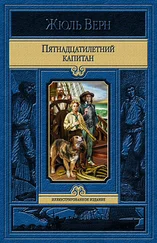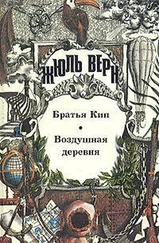Meanwhile, the earth’s disc was daily increasing in magnitude; the comet traveled 50,000,000 leagues during the month, at the close of which it was not more than 78,000,000 leagues from the sun.
A thaw had now fairly set in. The breaking up of the frozen ocean was a magnificent spectacle, and "the great voice of the sea," as the whalers graphically describe it, was heard in all its solemnity. Little streams of water began to trickle down the declivities of the mountain and along the shelving shore, only to be transformed, as the melting of the snow continued, into torrents or cascades. Light vapors gathered on the horizon, and clouds were formed and carried rapidly along by breezes to which the Gallian atmosphere had long been unaccustomed. All these were doubtless but the prelude to atmospheric disturbances of a more startling character; but as indications of returning spring, they were greeted with a welcome which no apprehensions for the future could prevent being glad and hearty.
A double disaster was the inevitable consequence of the thaw. Both the schooner and the tartan were entirely destroyed. The basement of the icy pedestal on which the ships had been upheaved was gradually undermined, like the icebergs of the Arctic Ocean, by warm currents of water, and on the night of the 12th the huge block collapsed en masse , so that on the following morning nothing remained of the Dobryna and the Hansa except the fragments scattered on the shore.
Although certainly expected, the catastrophe could not fail to cause a sense of general depression. Well-nigh one of their last ties to Mother Earth had been broken; the ships were gone, and they had only a balloon to replace them!
To describe Isaac Hakkabut’s rage at the destruction of the tartan would be impossible. His oaths were simply dreadful; his imprecations on the accursed race were full of wrath. He swore that Servadac and his people were responsible for his loss; he vowed that they should be sued and made to pay him damages; he asserted that he had been brought from Gourbi Island only to be plundered; in fact, he became so intolerably abusive, that Servadac threatened to put him into irons unless he conducted himself properly; whereupon the Jew, finding that the captain was in earnest, and would not hesitate to carry the threat into effect, was fain to hold his tongue, and slunk back into his dim hole.
By the 14th the balloon was finished, and, carefully sewn and well varnished as it had been, it was really a very substantial structure. It was covered with a network that had been made from the light rigging of the yacht, and the car, composed of wicker-work that had formed partitions in the hold of the Hansa , was quite commodious enough to hold the twenty-three passengers it was intended to convey. No thought had been bestowed upon comfort or convenience, as the ascent was to last for so short a time, merely long enough for making the transit from atmosphere to atmosphere.
The necessity was becoming more and more urgent to get at the true hour of the approaching contact, but the professor seemed to grow more obstinate than ever in his resolution to keep his secret.
On the 15th the comet crossed the orbit of Mars, at the safe distance of 56,000,000 leagues; but during that night the community thought that their last hour had taken them unawares. The volcano rocked and trembled with the convulsions of internal disturbance, and Servadac and his companions, convinced that the mountain was doomed to some sudden disruption, rushed into the open air.
The first object that caught their attention as they emerged upon the open rocks was the unfortunate professor, who was scrambling down the mountain-side, piteously displaying a fragment of his shattered telescope.
It was no time for condolence.
A new marvel arrested every eye. A fresh satellite, in the gloom of night, was shining conspicuously before them.
That satellite was a part of Gallia itself!
By the expansive action of the inner heat, Gallia, like Gambart’s comet, had been severed in twain; an enormous fragment had been detached and launched into space!
The fragment included Ceuta and Gibraltar, with the two English garrisons!
Chapter XVII
The Venture Made
What would be the consequences of this sudden and complete disruption, Servadac and his people hardly dared to think.
The first change that came under their observation was the rapidity of the sun’s appearances and disappearances, forcing them to the conviction that although the comet still rotated on its axis from east to west, yet the period of its rotation had been diminished by about one-half. Only six hours instead of twelve elapsed between sunrise and sunrise; three hours after rising in the west the sun was sinking again in the east.
"We are coming to something!" exclaimed Servadac. "We have got a year of something like 2,880 days."
"I shouldn’t think it would be an easy matter to find saints enough for such a calendar as that!" said Ben Zoof.
Servadac laughed, and remarked that they should have the professor talking about the 238th of June, and the 325th of December.
It soon became evident that the detached portion was not revolving round the comet, but was gradually retreating into space. Whether it had carried with it any portion of atmosphere, whether it possessed any other condition for supporting life, and whether it was likely ever again to approach to the earth, were all questions that there were no means of determining. For themselves the all-important problem was—what effect would the rending asunder of the comet have upon its rate of progress? and as they were already conscious of a further increase of muscular power, and a fresh diminution of specific gravity, Servadac and his associates could not but wonder whether the alteration in the mass of the comet would not result in its missing the expected coincidence with the earth altogether.
Although he professed himself incompetent to pronounce a decided opinion, Lieutenant Procope manifestly inclined to the belief that no alteration would ensue in the rate of Gallia’s velocity; but Rosette, no doubt, could answer the question directly, and the time had now arrived in which he must be compelled to divulge the precise moment of collision.
But the professor was in the worst of tempers. Generally taciturn and morose, he was more than usually uncivil whenever any one ventured to speak to him. The loss of his telescope had doubtless a great deal to do with his ill-humor; but the captain drew the most favorable conclusions from Rosette’s continued irritation. Had the comet been in any way projected from its course, so as to be likely to fail in coming into contact with the earth, the professor would have been quite unable to conceal his satisfaction. But they required to know more than the general truth, and felt that they had no time to lose in getting at the exact details.
The opportunity that was wanted soon came.
On the 18th, Rosette was overheard in furious altercation with Ben Zoof. The orderly had been taunting the astronomer with the mutilation of his little comet. A fine thing, he said, to split in two like a child’s toy. It had cracked like a dry nut; and mightn’t one as well live upon an exploding bomb?—with much more to the same effect. The professor, by way of retaliation, had commenced sneering at the "prodigious" mountain of Montmartre, and the dispute was beginning to look serious when Servadac entered.
Thinking he could turn the wrangling to some good account, so as to arrive at the information he was so anxiously seeking, the captain pretended to espouse the views of his orderly; he consequently brought upon himself the full force of the professor’s wrath.
Rosette’s language became more and more violent, till Servadac, feigning to be provoked beyond endurance, cried:
Читать дальше
![Жюль Верн Off on a Comet [Hector Servadac] обложка книги](/books/30131/zhyul-vern-off-on-a-comet-hector-servadac-cover.webp)










![Жюль Верн - Властелин мира [сборник]](/books/407848/zhyul-vern-vlastelin-mira-sbornik-thumb.webp)
